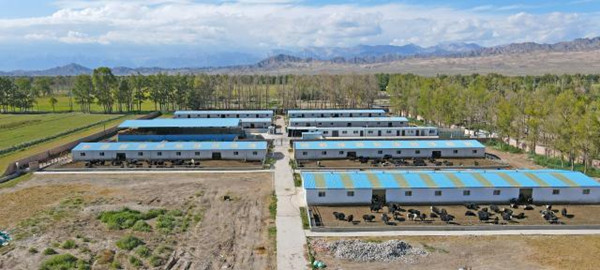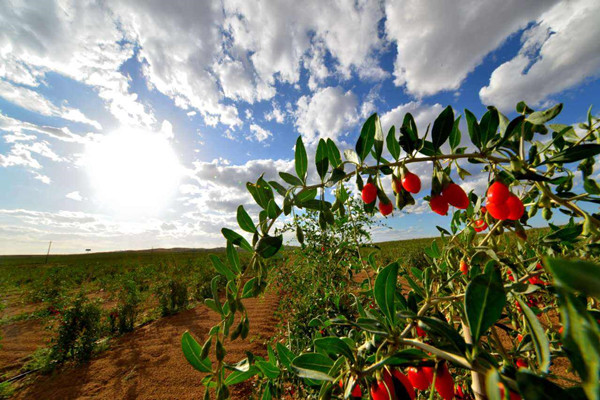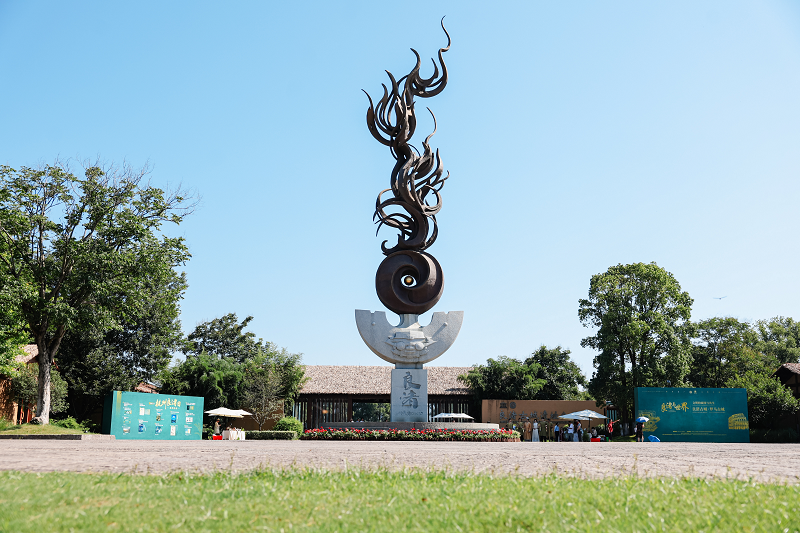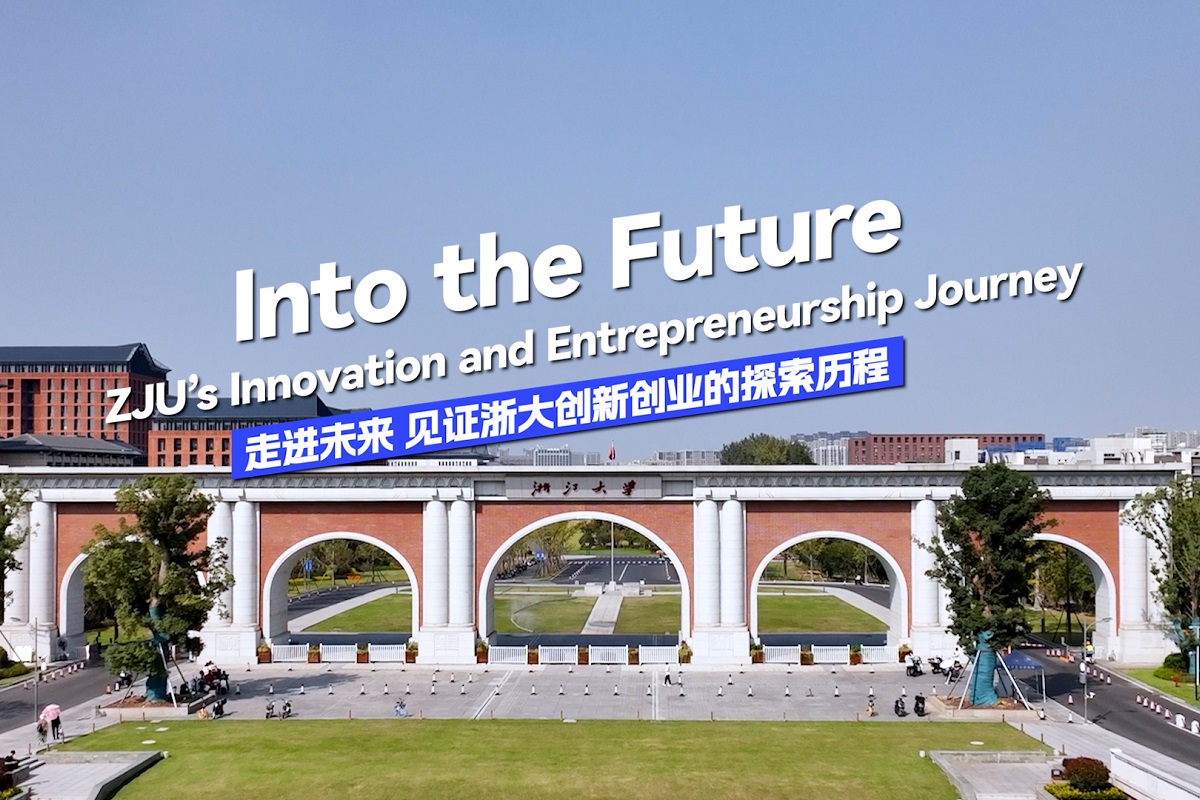Blooming flowers bring villagers' lives out of poverty

Yaks raised on a farm in Dongsheng village, Delingha city, Qinghai province, sell well in Southwest China's Sichuan province. [Photo/hangzhou.gov.cn]
Wang Xinhua, a flower grower from Jinyuan village, Delingha city, Qinghai province, has been busy decorating a bridge in downtown Delingha with her home-grown flowers.
The business, which is quite new to Wang as the soil in her village was once regarded as too barren for delicate plants, has brought her 3,000 yuan ($430) a month, almost the same as what she previously made by growing wheat and wolfberry for an entire year.
"I like planting flowers as I don't need to leave my family, and can make money and take care of my children at the same time. We built a new house last year and bought a new refrigerator," Wang said.
Like Wang, many other villagers have joined the flower business since 2018. They were guided by Wang Yuyun, the village director who first came up with the idea of filling an industry gap in Jinyuan.
"We used to buy flowers from Xining, the provincial capital, as no one in the entire Delingha area grew flowers," the director said. "Since there is such a big market, why shouldn't we have a try?"

Wolfberries are traditional plants in Delingha that have generated income for locals for centuries. [Photo/zjol.com.cn]
The impoverished village gained financial support of 900,000 yuan from Zhejiang province under the national program for rural poverty alleviation in 2018. Greenhouses covering over 1,350 square meters were erected and seedling experts came all the way from Hangzhou to share their knowledge and techniques with the villagers.
Jinyuan's flower business has bloomed ever since and everyone has boarded the profitable train. The villagers planted 350,000 pots of over 10 kinds of flowers in 2019 and generated collective revenue of 500,000 yuan. The villagers have taken over the entire flower business in Delingha.
The collaborative ties between Hangzhou and Delingha were bonded in 2010, covering infrastructure, education, characteristic industries, environment, grassroots governance and cultural exchanges. The Hangzhou government has offered financial aid of 27.7 million yuan for husbandry transformation and upgrading, and people from all parts of Hangzhou society have donated over 49 million yuan to the northwestern area.



